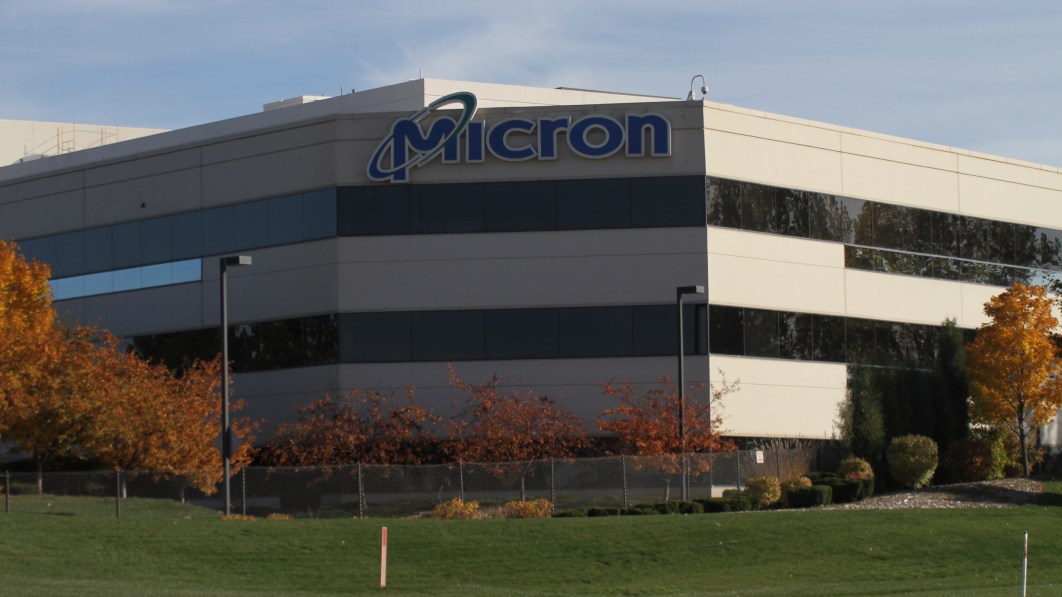A handful of companies, including chipmakers Micron and AMD, are signaling an easing of the two-year global shortage of semiconductor chips as rising inflation and cooling economies put pressure on consumer and corporate spending.
Micron Technology Inc, a maker of memory chips, forecast much worse than expected sales for the current quarter on Thursday, saying the market “weakened significantly in a very short time.”
Chip shares fell Friday, including those of Taiwanese TSMC and MediaTek, Dutch chip gear maker ASML, French-Italian company STMicroelectronics and Germany’s Infineon.
Due to the pandemic, chipmakers were overwhelmed with large orders from makers of smartphones and personal computers (PCs) who saw a surge in demand from home workers. The resulting chip shortage forced companies, including automakers, to scale back production, delay shipments and pay high premiums for key chips.
Recent COVID-19 lockdowns in China, until recently, had global executives issuing dire warnings about supply bottlenecks.
On the other hand, China’s restrictions put a brake on consumer demand and fueled inflation in the world’s second-largest economy, resulting in a sharp drop in smartphone and PC sales.
Advanced Micro Devices Inc last month signaled a slowdown in PC sales this year after two years of strong demand.
Micron said recent lockdowns in China have resulted in a 30% drop in sales in China in the current quarter.
According to Gartner, industry-wide smartphone shipments to China – the world’s largest smartphone market – are expected to shrink by 18% this year. It expects global shipments to fall by 7% due to supply chain woes and the war between Russia and Ukraine.
Ranjit Atwal, senior director of analyst at Gartner, said falling sales of smartphones and PCs this year will lead to a decrease in the chip shortage.
Atwal, who expected the demand for and supply of chips to be equal next year, predicts the cycle will be brought forward to this year. He said the declining smartphone market was not expected to be offset by an increase in demand for chips from automakers.
Still, Micron executives said they were confident in long-term demand for their chips, and industry analysts said chips used in EVs, 5G and high-speed computing were still in high demand.
Coming shift
TSMC, the world’s largest contract chipmaker, has seen its key customers cancel chip orders for the remainder of 2022, Taiwanese daily Digitimes said Friday, citing industry sources. TSMC declined to comment.
The No. 1 memory chip maker Samsung Electronics, in an effort to control overstocking, temporarily halted new purchase orders and asked some suppliers to delay or reduce component shipments for several weeks, Nikkei said last month.
“I think the magnitude of the shift has certainly been greater than anyone in the ecosystem expected,” Sumit Sadana, Micron’s chief business officer, said Thursday.
In addition, inflation is the highest in years in many countries, including the United States, which has increased the risk of a recession and led to job losses and tighter budgets.
Tesla, which uses hundreds of chips in its electric cars, has closed a California office and laid off about 200 employees. CEO Elon Musk previously said he had a “super bad” feeling about the economy and that the company needs to cut its salaried staff by about 10%.
Earlier this week, Volkswagen said chip shortages were receding and had begun to offset supply chain bottlenecks and rising costs.
As late as March, the German automaker warned that supply bottlenecks would hurt growth this year after it sold 2 million fewer cars than planned due to the chip crisis last year.
(Reporting by Sayantani Ghosh in Singapore; additional reporting by Supantha Mukherjee in Stockholm, Ben Blanchard in Taipei and Byungwook Kim in Seoul; editing by Kim Coghill)
